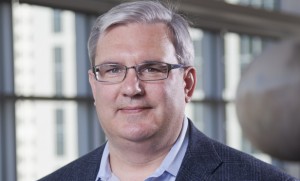Rethinking China: cuts, closures and strategy shifts underline challenges for US entrants
Why are so many US law reassessing their strategies in Hong Kong and China?
April 06, 2017 at 04:29 PM
8 minute read
US law firms are trying to come to grips with China.
Shaken by the disparity between expectations and reality, many firms are reassessing their China strategy. Some are urging Hong Kong-based lawyers to find positions at other firms. Some are shifting focus. Others are pulling back or even closing their doors in Hong Kong and Beijing. Investments that were once filled with great expectations are now major disappointments.
"Everyone is becoming more realistic about the China market," said one US firm partner, who wished to remain anonymous. "For most US firms, the reason behind coming to China was to make money, and they wanted to see a return on their investment."
The promise – and frequent disappointment – of doing business in China has been a common theme since at least the 19th century, when textile magnates in England dreamed they could keep their mills spinning by adding a few inches to every shirttail in China. Nearly two centuries later, the mythic market of the world's most populous land can still disappoint. And the legal industry is not immune.
 Once-abundant deals flowing through Hong Kong's capital markets have slowed dramatically. China's state-owned oil companies also have pulled back on overseas acquisitions, following a major anticorruption crackdown by the government. These factors, combined with perpetual fee pressures, have meant less work and lower profits than most law firms anticipated.
Once-abundant deals flowing through Hong Kong's capital markets have slowed dramatically. China's state-owned oil companies also have pulled back on overseas acquisitions, following a major anticorruption crackdown by the government. These factors, combined with perpetual fee pressures, have meant less work and lower profits than most law firms anticipated.
As a result, A-list lawyers have moved to new jobs. A six-lawyer Vinson & Elkins energy group led by former China head Xiao Yong departed for Dechert in March. Former Hong Kong partner Edwin Luk left Orrick Herrington & Sutcliffe in January with some 40 lawyers and staff to join Morgan Lewis & Bockius. Davis Polk & Wardwell announced that partner Antony Dapiran will leave the firm in June, while Hong Kong partner Dominic Tsun resigned from Kirkland & Ellis in March. Both are capital markets heavyweights. And last year, Cadwalader Wickersham & Taft announced it was closing its offices in Beijing and Hong Kong.
These departures and strategic pullbacks reflect a broader shift in how US firms operate in China, lawyers and market observers say. The amount of work in Hong Kong and China cannot compare with that of the US market. And very little of it has the potential to satisfy US firms' fee and margin requirements, lawyers say. While firms may have entered China aware of differences, progress has been slower than expected and many either cannot, or do not want to, hold on.
"US firms are cutting back on their investment in practices in Asia that are less profitable," says Evan Jowers, co-founder of Hong Kong-based legal recruiting firm Jowers/Vargas.
The pressures on the firms are greater now – particularly because of the sizeable profit increases experienced by leading US firms in recent years, said Jowers. Asian partners at those firms are now under more pressure to perform in sync with the rest of their firms. "The financials in Asia now matter more to these firms' global bottom line," Jowers said.
According to the early numbers of this year's Am Law 200 survey, Cadwalader, Davis Polk Kirkland and Vinson saw profits per partner grow in 2016 from a year earlier, while Orrick saw a decline.
Gone are the days when the work would follow as long as you had a big-name partner
The complaint of low profitability in China is not new. Before Cadwalader, several other firms called it quits in China for that very reason. In 2015, Fried Frank Harris Shriver & Jacobson closed its doors in Hong Kong and Shanghai and pulled out of Asia due to the firm's low profit margin. In 2003, Cravath Swaine & Moore closed its nine-year-old Hong Kong office because it didn't want to do "low cost work". A year earlier, Pillsbury Winthrop Shaw Pittman ditched its Hong Kong office amid a decline in capital markets work. (Pillsbury did reopen an office in Hong Kong last year, with an aircraft finance practice led by former Clyde & Co global aviation head Paul Jebely.)
But despite the departures of top talent, Davis Polk, Kirkland, Orrick and Vinson all say they remain committed to the China market. They are merely changing direction and need to refocus their practices, they say.
Vinson conducted a strategic review in 2016, when management decided the Beijing and Hong Kong offices should refocus their practices to be more consistent with the firm's global strategy. That strategy includes private equity and special situations, energy projects for global clients, international dispute resolution, governmental investigations and intellectual property.
But outbound energy deals for Chinese state-owned enterprises – a practice that was once the winning bet of Vinson's China business – are no longer part of the plan. Between 2010 and 2011, Vinson handled more China M&A deals by value than any law firm in the world. But as state-owned oil companies pulled back on overseas acquisitions following China's anti-corruption crackdown, the volume of work in the firm's China energy practice declined.
 Orrick chairman Mitchell Zuklie (pictured) said it was difficult for the firm to see Luk and his talented capital markets team leave for Morgan Lewis, but the Hong Kong capital markets boom appears to be over. The firm wants its China offices to be more in sync with its global strategy, and that does not include capital markets, he said.
Orrick chairman Mitchell Zuklie (pictured) said it was difficult for the firm to see Luk and his talented capital markets team leave for Morgan Lewis, but the Hong Kong capital markets boom appears to be over. The firm wants its China offices to be more in sync with its global strategy, and that does not include capital markets, he said.
Cadwalader offered a similar explanation for its more drastic decision to close its offices in Beijing and Hong Kong: there was a mismatch in work and clients between the firm's China offices and the rest of the firm, it said.
But for now, most firms are not calling it quits. Davis Polk may be losing Dapiran, who specialises in listing Chinese state-owned enterprises in Hong Kong and was featured in the March 2010 issue of The American Lawyer as one of 'The New China Hands'. However, the firm says departures in Hong Kong are not related to profitability and it is still committed to capital markets work there. Kirkland says it is too, despite the departure of Tsun, who was one of The American Lawyer's 2011 star lateral hires .
But Davis Polk and other firms that are sticking it out are not completely dependent on a capital markets practice. A significant portion of Davis Polk's Hong Kong business, for example, comes from its local litigation practice, says William Barron, the firm's Hong Kong-based Asia head. That practice, a rarity among its US peers, was launched in 2013 with the hire of former Clifford Chance partners Martin Rogers and James Wadham. The team has expanded and now has 20 full-time litigators.
Orrick also has a Hong Kong litigation practice, led by partner Charles Allen, who joined from Sidley Austin in 2016.
For many firms, a big part of rethinking China is diversification. Disputes work, including litigation and government investigations, is becoming a new norm among firms traditionally strong in transactions. Davis Polk's Wall Street peers Skadden Arps Slate Meagher & Flom and Simpson Thacher & Bartlett – both strong in China-related M&A and listing works – have made hires in recent years to beef up US litigation representation for Chinese clients.
Last year, Skadden hired Steve Kwok, the US Department of Justice's resident legal adviser in Beijing, as a Hong Kong partner to co-lead an Asian investigations and government enforcement practice with partner Bradley Klein. All 11 dedicated lawyers in the group, including Kwok and Klein, are bilingual in English and Mandarin.
In addition to the investigations work related to the US Foreign Corrupt Practices Act, the group also helps companies conduct pre-closing or post-closing due diligence on Asian M&A deals and defends US-listed Chinese companies against securities lawsuits filed in US courts, Kwok said.
In 2015, Simpson Thacher hired former Gibson Dunn & Crutcher associate Adam Goldberg, also a fluent Mandarin speaker, as counsel in Hong Kong to handle Asia-related litigation and investigations work.
Vinson also has identified disputes and investigations as practice areas to focus upon in its renewed China strategy. Orrick has long had a China-based intellectual property litigation practice, representing Chinese clients in US proceedings. And Kirkland has a three-partner investigations and white-collar defence practice in Shanghai.
More firms will have to adjust their strategies in China as the market continues to diversify, lawyers say.
"Gone are the days," says one Hong Kong-based partner at a US firm, "when the work would follow as long as you had a big-name partner."
This content has been archived. It is available through our partners, LexisNexis® and Bloomberg Law.
To view this content, please continue to their sites.
Not a Lexis Subscriber?
Subscribe Now
Not a Bloomberg Law Subscriber?
Subscribe Now
NOT FOR REPRINT
© 2025 ALM Global, LLC, All Rights Reserved. Request academic re-use from www.copyright.com. All other uses, submit a request to [email protected]. For more information visit Asset & Logo Licensing.
You Might Like
View All
KPMG's Bid To Practice Law in US On Hold As Arizona Court Exercises Caution

Combative Arguments at EU's Highest Court Over Google's €4.13B Antitrust Fine Emphasize High Stakes and Invoke Trump
4 minute read
Law Firms 'Struggling' With Partner Pay Segmentation, as Top Rainmakers Bring In More Revenue
5 minute readTrending Stories
- 1South Florida Real Estate Lawyers See More Deals Flow, But Concerns Linger
- 2General Counsel Accused of Destroying Evidence
- 32,000 Docket Entries: Complex South Florida Dispute Sets Precedent
- 4Incoming Howard University Law Professor Kiah Duggins Among DC Plane Crash Victims
- 5Bass Berry & Sims Relocates to Nashville Office Designed to Encourage Collaboration, Inclusion
Who Got The Work
J. Brugh Lower of Gibbons has entered an appearance for industrial equipment supplier Devco Corporation in a pending trademark infringement lawsuit. The suit, accusing the defendant of selling knock-off Graco products, was filed Dec. 18 in New Jersey District Court by Rivkin Radler on behalf of Graco Inc. and Graco Minnesota. The case, assigned to U.S. District Judge Zahid N. Quraishi, is 3:24-cv-11294, Graco Inc. et al v. Devco Corporation.
Who Got The Work
Rebecca Maller-Stein and Kent A. Yalowitz of Arnold & Porter Kaye Scholer have entered their appearances for Hanaco Venture Capital and its executives, Lior Prosor and David Frankel, in a pending securities lawsuit. The action, filed on Dec. 24 in New York Southern District Court by Zell, Aron & Co. on behalf of Goldeneye Advisors, accuses the defendants of negligently and fraudulently managing the plaintiff's $1 million investment. The case, assigned to U.S. District Judge Vernon S. Broderick, is 1:24-cv-09918, Goldeneye Advisors, LLC v. Hanaco Venture Capital, Ltd. et al.
Who Got The Work
Attorneys from A&O Shearman has stepped in as defense counsel for Toronto-Dominion Bank and other defendants in a pending securities class action. The suit, filed Dec. 11 in New York Southern District Court by Bleichmar Fonti & Auld, accuses the defendants of concealing the bank's 'pervasive' deficiencies in regards to its compliance with the Bank Secrecy Act and the quality of its anti-money laundering controls. The case, assigned to U.S. District Judge Arun Subramanian, is 1:24-cv-09445, Gonzalez v. The Toronto-Dominion Bank et al.
Who Got The Work
Crown Castle International, a Pennsylvania company providing shared communications infrastructure, has turned to Luke D. Wolf of Gordon Rees Scully Mansukhani to fend off a pending breach-of-contract lawsuit. The court action, filed Nov. 25 in Michigan Eastern District Court by Hooper Hathaway PC on behalf of The Town Residences LLC, accuses Crown Castle of failing to transfer approximately $30,000 in utility payments from T-Mobile in breach of a roof-top lease and assignment agreement. The case, assigned to U.S. District Judge Susan K. Declercq, is 2:24-cv-13131, The Town Residences LLC v. T-Mobile US, Inc. et al.
Who Got The Work
Wilfred P. Coronato and Daniel M. Schwartz of McCarter & English have stepped in as defense counsel to Electrolux Home Products Inc. in a pending product liability lawsuit. The court action, filed Nov. 26 in New York Eastern District Court by Poulos Lopiccolo PC and Nagel Rice LLP on behalf of David Stern, alleges that the defendant's refrigerators’ drawers and shelving repeatedly break and fall apart within months after purchase. The case, assigned to U.S. District Judge Joan M. Azrack, is 2:24-cv-08204, Stern v. Electrolux Home Products, Inc.
Featured Firms
Law Offices of Gary Martin Hays & Associates, P.C.
(470) 294-1674
Law Offices of Mark E. Salomone
(857) 444-6468
Smith & Hassler
(713) 739-1250










